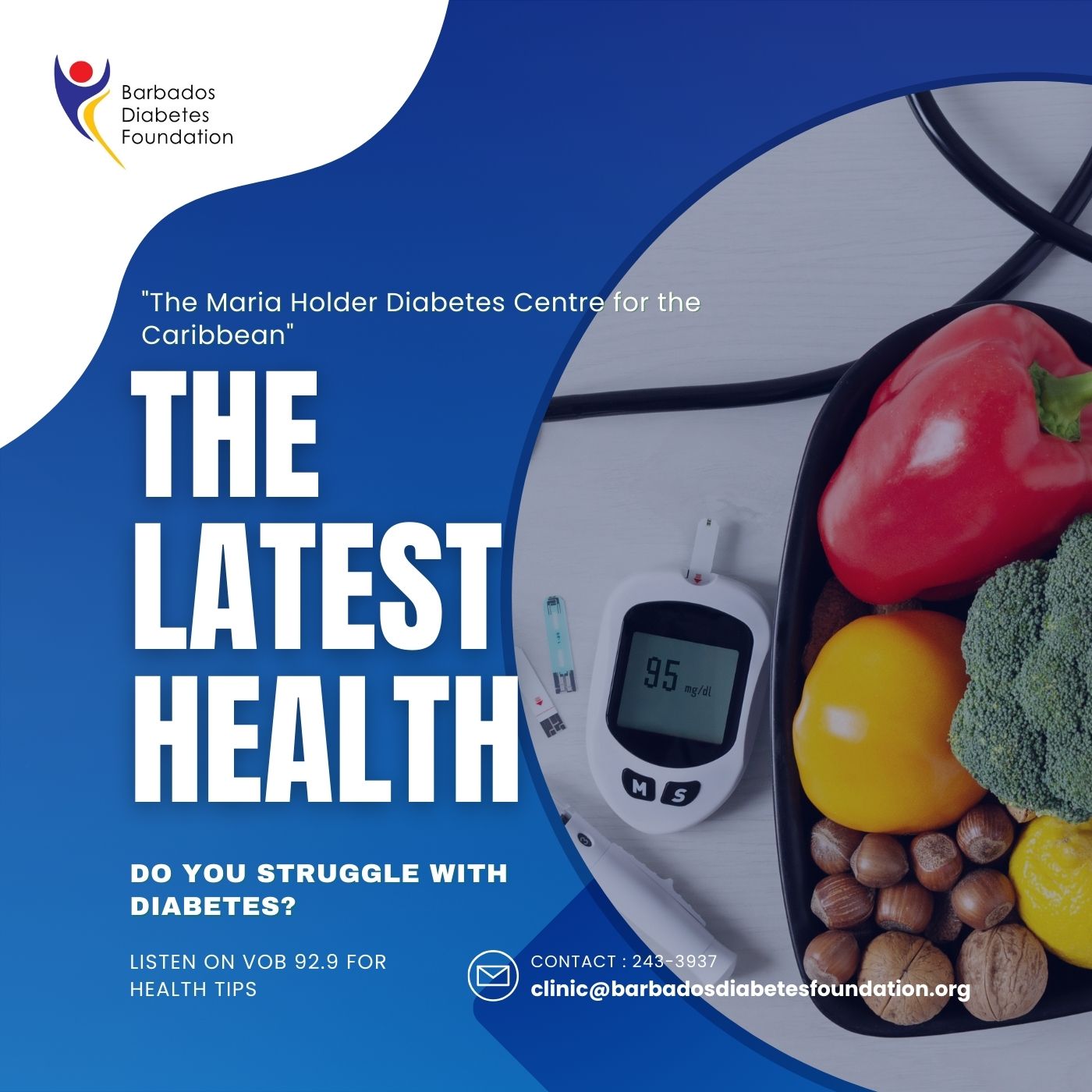Episode Transcript
[00:00:01] Speaker A: This is the latest health brought to you by the Maria Holder Diabetes center and the Barbados Diabetes Foundation. In today's program we speak with Dr. Diane Brathwaite as she shares on the topic know your risk. Could you have diabetes?
[00:00:17] Speaker B: My name is Dr. Diane Brathwaite, some people call me Dr. B. I'm a diabetes consultant physician and the clinical director at the Maria Holder Diabetes center for the Caribbean. And what do I do? I do everything I think I'm the cook, the cleaner and the bottle washer as But I will see you, I will counsel you, I'll assess your risk for diabetes. I'll also advise you on what kind of screening you need to have done if you do have diabetes to make sure you have no complications, your full medical history and although I am seeing you with diabetes, every aspect of your health actually matters to us and it's important in advising your managing you.
[00:00:54] Speaker A: She spoke on testing and knowing your numbers.
[00:00:58] Speaker B: It's important for everybody to think about, you know, what is my risk of having non communicable diseases or NCDs such as diabetes, hypertension and cholesterol. I've actually said that because those three conditions often walk hand in hand and you'll see what I mean just now. So what are some of the risk factors for having diabetes? So first of all, do you have diabetes in your family? Are you overweight or obese? Have you recently put on more weight than usual? Do you have a history of alcohol excess? Are you a smoker? Believe it or not, this is the one that's going to surprise people. Are you over the age of 35 years? Previously they said age over 45 years but because the number of people has been increasing and we're seeing more younger people with type 2 diabetes. Are you over the age of 35 years? Do you lead a sedentary lifestyle? And that means are you sitting down a lot as the day comes, maybe at your work etc as opposed to having a very physical job? Do you have high blood pressure? The risk of having diabetes is much higher if you have a diagnosis of hypertension and also if you have a cholesterol problem or did you have diabetes in pregnancy, that's something called gestational diabetes. There is something that people call prediabetes and this is what people call the early diabetes. But I want to tell you this diabetes is a spectrum condition. So therefore me the complications that you can get in diabetes actually start from the pre diabetic phase. So I like to actually say know your risk. Could you have pre diabetes or diabetes? People sometimes View pre diabetes as oh, that's the warning sign. I don't have to worry as much. But you do have to be concerned and you do have to manage it actively. If you want to know if you have prediabetes or diabetes, you should have a proper diabetes screening test. So you know you want to go and get your fasting blood glucose over an overnight fast and or HBA1C. I generally prefer that people do both tests and it's actually recommended that you do both tests. But if you can only do one, you can do one. But proper screening is really doing both of the tests. So having a HBA1C 6.5% or more puts you in that bracket of diabetes. If it is 5.7% or more, that can put you in the pre diabetes zone. But once again I think you have to really just always discuss with your health care providers there is another test that you can do something called the oral glucose tolerance test and that's if you have doubt or if you need a confirmatory test for it, you can do oral glucose tolerance test. And what you do is you do the fasting blood sugar, you take a sugar load and then you check the blood sugar two hours later. For most people it's going to be two hours later. If your blood sugars are elevated or you have a potential diagnosis of pre diabetes, I actually suggest checking your numbers again in about six months and the aim within that period should be to put in place things like your lifestyle, exercise, diet. If you're overweight, lose some weight, cut out all the sugar, sweetened beverages, drink more water, more water, more water. And you want to see whether you've gotten things back down to baseline. If you're normal, depending on your risk, you will discuss it with your care provider as to how often you'd repeat that test. And the test can be repeated every year to every three years. But once again I think it depends on how close you are to that diagnosis of the pre diabetes and what your risks are as to when the repeat testing should be. So that's something that we decided between you and your care provider.
[00:04:35] Speaker A: Finally, Dr. B shares important contact information.
[00:04:39] Speaker B: We are a building in Warrens. We're right next door to the Polyclinic in Lawrence Polyclinic. Our phone number is 4170305. We also have a website, thebarbatusdiabetesfoundation.org and you can click into there and that give you more information on us or you can find us on Facebook and Instagram.
[00:04:58] Speaker A: This has been the latest Health brought to you by the Maria Holder Diabetes Center.


